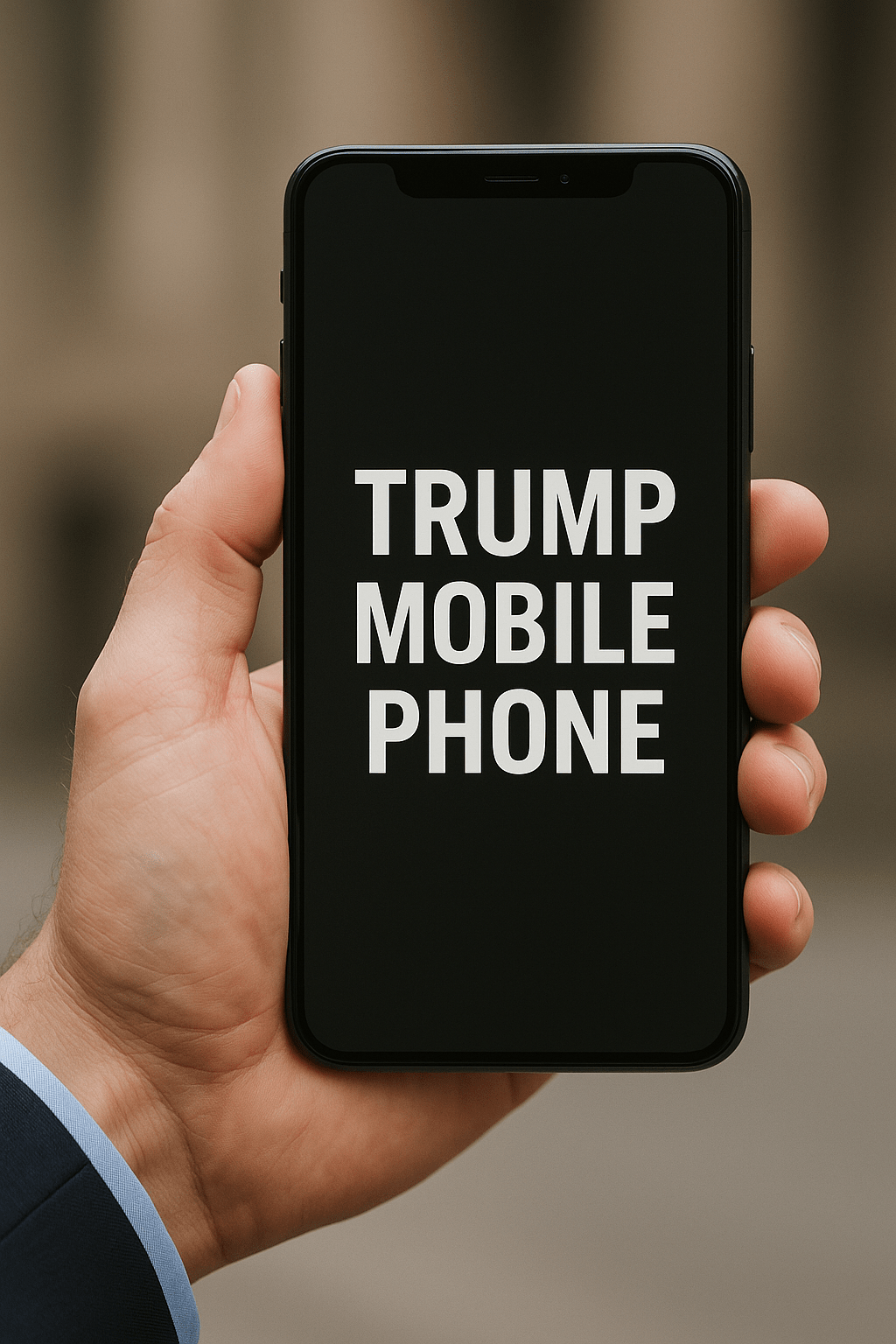The Trump mobile phone, once promoted as a revolutionary American-made smartphone, is now at the center of a growing controversy. Marketed as a bold response to Chinese tech dominance, the device was supposed to symbolize manufacturing revival and digital sovereignty. But recent developments reveal a stark shift—the “Made in USA” promise has vanished from official branding, raising serious concerns over transparency, production ethics, and political posturing.
US: From Patriotism to Ambiguity
Initially unveiled as a fully U.S.-assembled device, the Trump mobile phone was set to be the first major smartphone manufactured entirely on American soil. The project gained traction through campaign speeches, nationalist branding, and viral online promotion. However, newly updated promotional materials now refer only to “Designed with American values in mind,” stripping away the earlier patriotic manufacturing claims.
This subtle rebranding has sparked backlash from watchdog groups, tech experts, and former supporters, many of whom now accuse the campaign of misleading the public for political gain.
Quiet Downgrades in Hardware
In addition to branding changes, the Trump mobile phone’s technical specifications have also been silently revised.
- The original 6.8-inch AMOLED display is now listed as 6.5 inches.
- Promised 1TB storage and 12GB RAM specs have been removed entirely.
- No updated pricing or chipset information has been provided.
Analysts say the lack of clarity and sudden downgrades suggest possible sourcing or supply chain compromises, potentially involving overseas components—something the initial marketing explicitly condemned.
Consumer Trust at Risk: Trump mobile phone
Transparency and trust are cornerstones of product credibility, especially in the tech space. When a product like the Trump mobile phone markets itself as a symbol of national pride, any deviation from those values can shatter consumer confidence.
“This isn’t just a marketing mistake. It’s a trust breach,” says Carla Jenkins, a mobile technology analyst. “Consumers were led to believe this device stood for American excellence. Now, they’re left with questions and no accountability.”
The shift also raises concerns with the Federal Trade Commission (FTC), which regulates false or misleading “Made in USA” claims under strict guidelines. If final assembly or key components are sourced internationally, the Trump campaign may face legal scrutiny.
Political Fallout and Strategic Silence
Critics argue that the Trump mobile phone controversy reflects broader issues in political marketing, where flashy promises often eclipse factual delivery. As of now, no official statement has been issued addressing the removal of “Made in USA” claims or the altered specs.
While supporters defend the project as a “work in progress,” others view the silence as a tactic to avoid electoral embarrassment during a crucial campaign year.
What This Means for the Smartphone Market
The smartphone industry is highly competitive and driven by transparency. Brands like Apple, Samsung, and Google invest heavily in not just product innovation, but brand integrity. The Trump mobile phone, now clouded by conflicting messaging, enters the market under a microscope.
For it to succeed, clarity and credibility must be restored—not just through advertising, but through verifiable action and technical accountability.


